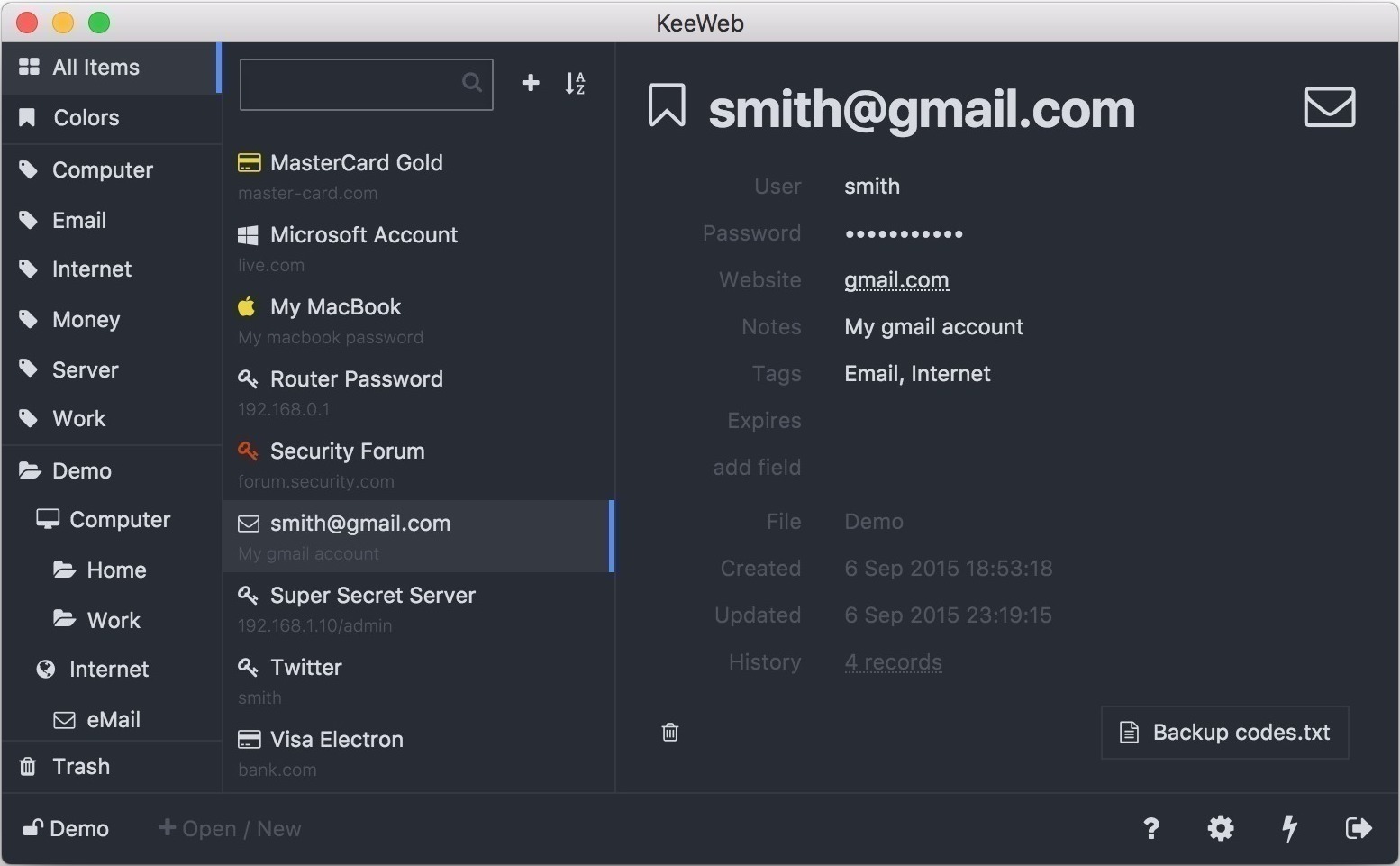
With KeepassXC you could have a keyfile that you was necessary to unlock your database while Bitwarden doesn't have that option.
KEEWEB DROPBOX FLORD PASSWORD
Lack of shortcuts to copy only the username or only the password and forcing me to reach for the mouse. It can also be used as an autofill service which allows it to interact with other apps which is incredibly useful.īut because nothing in this world is perfect, the downsides so far are:ġ.
KEEWEB DROPBOX FLORD ANDROID
The main selling points for me were that it's open source and they allow you to host it yourself.Īpart from these, I really enjoy the browser addons which don't require any jumping through hoops and that they provide their own Android client and you don't have to play Play Store Columbus to find a decent one. I only found out about Bitwarden a few weeks ago and it got me to change from KeepassXC and I'm overall very happy with the change.

Some password managers have OTP generators built-in, which can be convenient. hard drive encryption password, a pgp/ssh key, a wifi password), it's a bit easier to do in a password manager. If you have passwords that don't map to a website - e.g. If you have multiple accounts on a single website, it's a bit easier to do in a password manager (at least Keepass or Bitwarden).Ĭhrome is a web browser, so it only remembers passwords to websites.

But having a password manager on my phone lets me store passwords for my various work-related accounts somewhere, which makes each password change fairly easy, and also lets me log into certain work-related apps/sites (e.g. They also have an ridiculously strict password change policy (every 3 months). My employer MITMs all web traffic, so I would never log into my Google account from work. This created a bit of a sense of urgency for me, as Google aggressively removes features that they don't want to support. A few things I learned:Ĭhrome has a feature to export passwords to a CSV file, but I had to enable it via a chrome:flag, so who knows if/when support for this will disappear. I recently starting using Firefox again, and getting my passwords out of Chrome was by far the most difficult part of the process for me. What you're asking for feels more like security theater than anything that's actually relevant to security. I, personally have reported three different security issues to LastPass, none of which have been fixed ( clear to me that LogMeIn, which owns LastPass and has a big-deal, flashy "About" page, is much less security-focused than Bitwarden. I care a lot more about the fact that hundreds of vulnerabilities have been submitted to LastPass's bug bounty program and they haven't chosen to disclose any of them, whereas a much smaller number have been submitted to Bitwarden's program and they've disclosed several. They're not trying to hide anything from anyone who cares to spend 30 seconds trying to find out. The article I just linked to makes it perfectly clear "who's behind" Bitwarden, and you can find it out easily with a few seconds of Googling like what I just did.

I don't see why their location is particularly important, but if you care, you can look on Kyle's LinkedIn profile, which I was able to browse my way to in about 45 seconds from a standing start from their web site. I mean, I suppose it's possible that they have one, but my assumption is that the entire company is remote. In this day in age it is common for a two-year-old SaaS startup not to have an office.


 0 kommentar(er)
0 kommentar(er)
